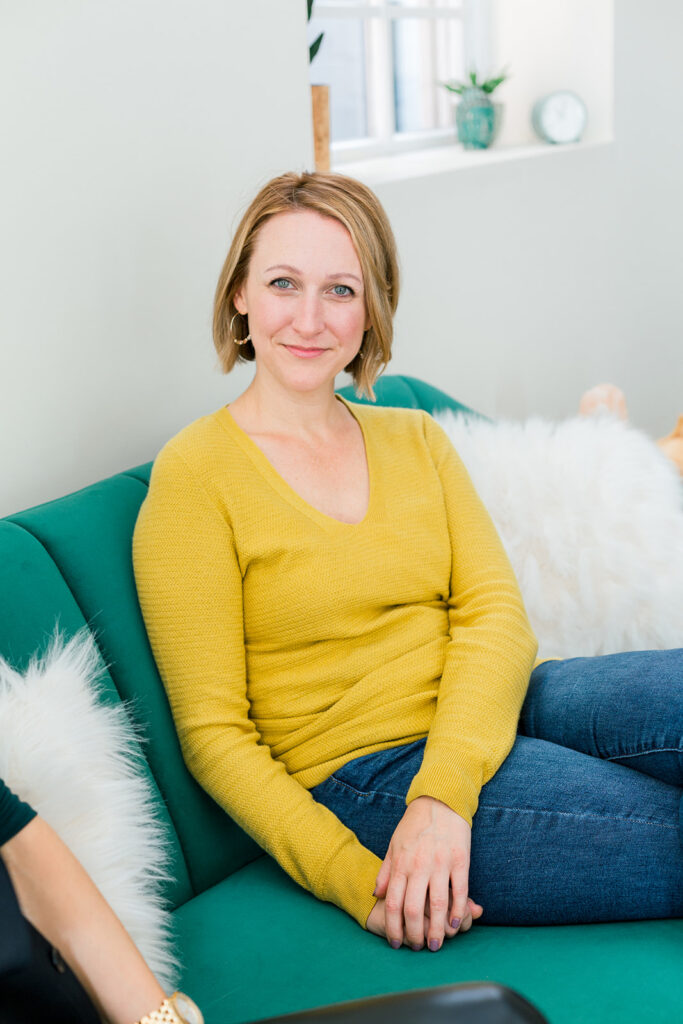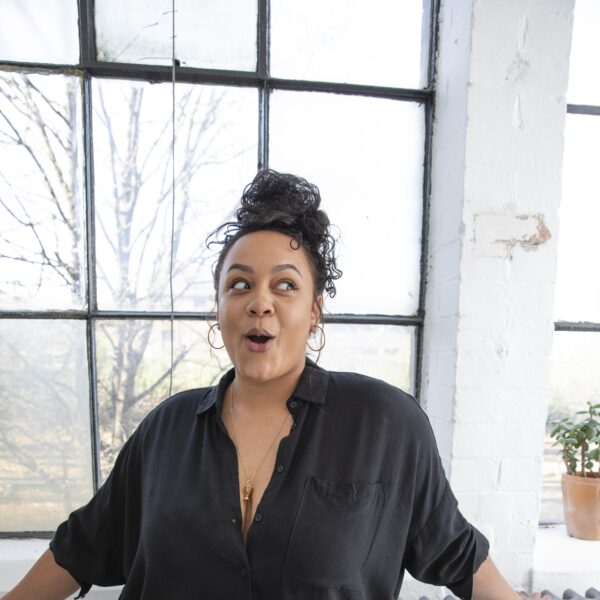If you struggle with an eating disorder or have a difficult relationship with your body. Fitness may be a complicated piece of your life. It may be tied to changing your body or looking a different way. Keep reading to learn how one our therapists changed her relationship with her body and learned she was more than a body through acceptance.

I sought after a body I could never have; it’s just not in my build.
Treadmills and ellipticals turned into spin class, which turned into Zumba, kickboxing, and mixed yoga. Intermittently, I tried pole dancing and swimming, but nothing clicked until I stepped into a CrossFit gym. For the first time, CrossFit changed the voices in my head from begging me to get smaller and smaller into voices telling me to lift heavier, go faster, and be stronger. Those voices saved my life.
I was headed toward destruction before I discovered lifting, destroying my body in one way or another, constantly at war with it. CrossFit is how I connected with my husband. It’s also changed my relationship with my body and food, seeing it as fuel and energy. I was pretty good at it, too, so the accomplishment-driven athlete in me, the inner child who was always decent but never great, felt like I got a do-over.
But Covid-19 changed all of that. As a therapist, I experienced suffering on a level apart from my own and held that space for people. That type of emotional intensity is draining. Sooner or later something had to give in order for me to do this work and continue leading a healthy, balanced life. It had to be my dedication to CrossFit.
A massive shift in identity for me; CrossFit had been foundational. It changed the trajectory of my life. But the energy I was spending and how I was training needed to be more sustainable. I still loved the way it made me feel, the community.
Still, I had to start implementing other practices of maintaining movement.
I chose yoga, not for a workout but for a yin, meditative recovery, more like a pause for my brain, forced into mindfulness and presence. I also walked alone, with my dog, and sometimes with friends. As a result, fitness had gone from punishment to my body for not being “perfect” to a celebration of dedication, hard work, and strength, to now what? Just a piece of my life? (yes) Something that didn’t completely define me as an extension of my body and was done just because it made me feel good? (Yes) If this isn’t who I am, then what? (Oh, the possibilities!)
Slowly I began to heal my eating disorder and my relationship with my body. I started to realize I had a body but was more than a body.
What a strange experience to reconnect with a body that I’d been obsessed with for over 20 years. I don’t think I ever realized that I could be someone people genuinely see outside my body. Years and years and years of different therapists, some not so great, some wonderful, finally helped me understand that people genuinely don’t only love you for your body.
How Eating Disorders Take Root
I’ll list some things that helped me realize how I had become so obsessed. Maybe it will help you too:
Minimize body checking. I no longer have a huge mirror in my room, and I’ve stopped staring at and pinching the parts of me I dislike. I’ve also stopped weighing myself. This helped a lot with disordered eating.
Stop hanging out with people who make you feel like shit about your body. Hang out with people who do more than talk about their bodies. Instead, hang out with people who value you for who you are, not what you look like.
Get rid of those clothes you’ve been holding onto that “might fit again.” Buy clothes that fit you. If a shoe doesn’t fit your feet, you don’t blame your feet. You blame the shoe. So, go buy some new jeans.
Unfollow social media accounts that make you question or compare. Follow accounts that match your values and interests. Better yet, minimize your online time! (Pot meet Kettle)
Listen to your body. Do you need to break a sweat? Stretch a little? Scream into the void? Perhaps you need a bit of rest (real rest). Your body does hold onto trauma. It’s not something your therapist says to make you feel better. Often, trauma shows itself in physical ways. Don’t force yourself through pain. Learn to rest. This will teach you to recognize you are more than a body.
Learning to see yourself as more than a body is challenging.
Learn about The Patriarchy. Because The Patriarchy is how we’ve learned what to value in ourselves. This includes what beauty standard we follow and how we should be sexually performative for men’s pleasure but feel shame for our own. The more we obsess over our bodies or learn to make ourselves smaller, the less time we have for other ventures. This easily can become an eating disorder if left unchecked.
The diet industry makes a ton of money off of the patriarchal views of what beauty is. The diet industry shames us and sets us up for failure, causing us to continue to try the next thing, fueling capitalism. Yes, people make money from making us feel like shit about our bodies. Yes, they are doing it knowingly.
Learning to see yourself for more than a body is challenging. It’s a choice every single day to question and challenge, but it is worth it.
Looking for a therapist or unsure where to begin? Get started on our booking page.





Leave a Reply